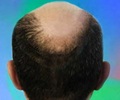
The findings will likely open the floodgates for new treatments, say researchers.
According to Dr. Angela Christiano, professor of dermatology and genetics and development at Columbia University Medical Center in New York City, this means that drugs already in development could be used to treat this condition - a huge advantage.
However, the Food and Drug Administration (FDA) has not yet approved any treatments for alopecia areata.
One gene in particular - ULBP3 - attracted the toxic cells that attack the follicle, resulting in hair loss.
"It's like putting nectar on the hair follicle, then the 'bees' come in and do their damage," Fox News quoted Vicki Kalabokes, president and CEO of the Alopecia Foundation, as saying.
Advertisement
Source-ANI













